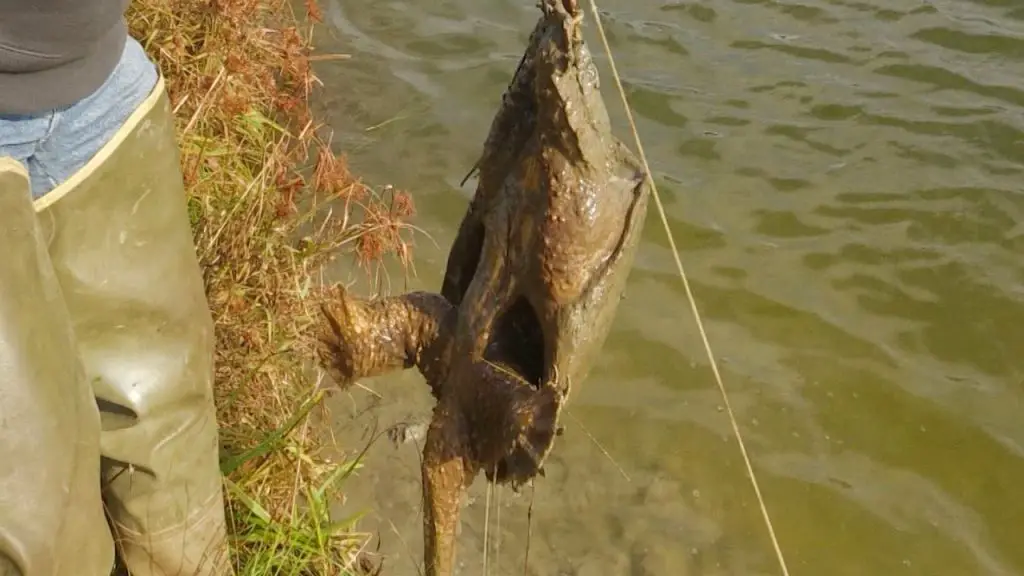Snapping turtles are fascinating creatures that can be found in various bodies of water, including ponds. If you’re dealing with a snapping turtle problem in your pond and need to trap it for relocation, it’s essential to do so safely and effectively. In this guide, we will walk you through the steps on how to trap a snapping turtle in a pond.
1. Understand the Behavior of Snapping Turtles
Before attempting to trap a snapping turtle, it’s crucial to understand their behavior. Snapping turtles are known for their aggressive nature and powerful jaws. They are primarily carnivorous and will eat fish, frogs, and even small mammals. It’s essential to approach them cautiously to avoid injury.
2. Choose the Right Trap
When trapping a snapping turtle, you’ll need to select the appropriate trap. A common type of trap used for snapping turtles is a baited hoop trap. This trap consists of a wire hoop with a net that can be submerged in the water to capture the turtle.

Credit: www.youtube.com
3. Bait the Trap
To lure the snapping turtle into the trap, you’ll need to use an attractive bait. Snapping turtles are attracted to a variety of baits, including fish, meat, and even fruits. Place the bait inside the trap to entice the turtle to enter.

Credit: www.farmanddairy.com
4. Place the Trap Strategically
It’s essential to position the trap in an area where snapping turtles are known to frequent. Look for signs of turtle activity, such as tracks or nests, and place the trap in a location where the turtle is likely to encounter it.
5. Check the Trap Regularly
Once you’ve set the trap, it’s crucial to check it regularly to ensure that the snapping turtle is captured promptly. Leaving the turtle trapped for an extended period can be harmful to its health. Check the trap at least once a day.
6. Handle the Turtle Carefully
When you’ve successfully trapped the snapping turtle, it’s essential to handle it with care. Snapping turtles can be dangerous, so it’s crucial to approach them cautiously. Use gloves and avoid getting too close to their powerful jaws.
7. Release the Turtle Safely
After you’ve captured the snapping turtle, it’s time to release it safely. Choose a suitable location away from your pond where the turtle can thrive. Release the turtle gently and avoid any sudden movements that may startle it.
8. Prevent Future Encounters
To prevent future snapping turtle encounters in your pond, consider installing a fence or barrier to deter them from entering. You can also remove potential food sources that may attract snapping turtles, such as fish or frogs.
Conclusion
Trapping a snapping turtle in a pond requires caution and patience. By understanding their behavior, choosing the right trap, and handling the turtle carefully, you can safely capture and relocate the turtle without causing harm. Remember to release the turtle in a suitable location and take steps to prevent future encounters to maintain a healthy pond ecosystem.





